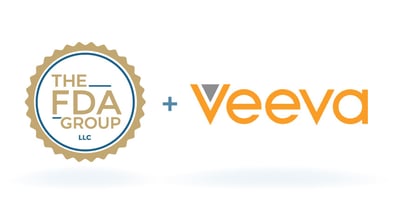U.S. FDA-Specific Regulations
General Frameworks
-
FDA Quality System Regulation (QSR) – 21 CFR Part 820, core GMP regulation for devices
-
FDA Quality Management System Regulation (QMSR) – Forthcoming modernization of QSR based on ISO 13485
-
21 CFR Part 11 – Electronic Records and Electronic Signatures, foundational for data integrity and computerized systems
Drugs & Biologics
-
21 CFR Part 210/211 – Current Good Manufacturing Practice (cGMP) for Drugs
-
21 CFR Parts 600–680 – Biologics Regulations, including requirements for blood products, vaccines, allergenics, cellular and gene therapies
-
21 CFR Part 312 – Investigational New Drug Applications (IND)
-
21 CFR Part 314 – New Drug Applications (NDA)
-
21 CFR Part 601 – Biologics License Applications (BLA)
Medical Devices
-
21 CFR Part 807 – Registration and Device Listing
-
21 CFR Part 812 – Investigational Device Exemptions (IDE)
-
21 CFR Part 814 – Premarket Approval (PMA)
-
21 CFR Part 820 – Quality System Regulation (QSR) (already listed above for completeness)
Data Integrity & Inspection Readiness
-
FDA Data Integrity Guidance – Including ALCOA+ principles
-
FDA Compliance Program Guidance Manuals (CPGMs) – Internal FDA playbooks for inspections and enforcement
International Regulations & Harmonization
-
ISO 13485:2016 – Medical Devices Quality Management Systems (core global QMS standard)
-
ISO 14971:2019 – Risk Management for Medical Devices
-
ISO 9001:2015 – General Quality Management Systems, sometimes paired with ISO 13485
-
ISO 14155:2020 – Good Clinical Practice for Medical Device Clinical Investigations
-
EU MDR/IVDR – Medical Device Regulation (EU) 2017/745 and In Vitro Diagnostic Regulation (EU) 2017/746
-
EU GMP Guidelines (EudraLex Vol. 4) – cGMPs applicable to drugs and biologics in the EU
-
GxP Guidelines – GLP, GCP, GMP, and related standards across development and manufacturing
-
WHO Technical Report Series (TRS) – cGMP guidance used widely in emerging markets and by global health organizations
-
MDSAP (Medical Device Single Audit Program) – Unified audit approach accepted by FDA, Health Canada, TGA, ANVISA, PMDA
-
PIC/S GMP Guidelines – Pharmaceutical Inspection Co-operation Scheme, harmonized global GMP framework
-
Global Harmonization Standards – Including consensus standards recognized under IMDRF and international equivalency programs
ICH Guidelines (Including and Beyond Q10)
-
ICH Q10 – Pharmaceutical Quality System (already listed above, core to lifecycle GMP oversight)
-
ICH Q8(R2) – Pharmaceutical Development
-
ICH Q9 – Quality Risk Management
-
ICH Q11 – Development and Manufacture of Drug Substances
-
ICH E6(R3) – Good Clinical Practice (GCP) Guidelines
-
ICH M4 – Common Technical Document (CTD) for registration submissions


